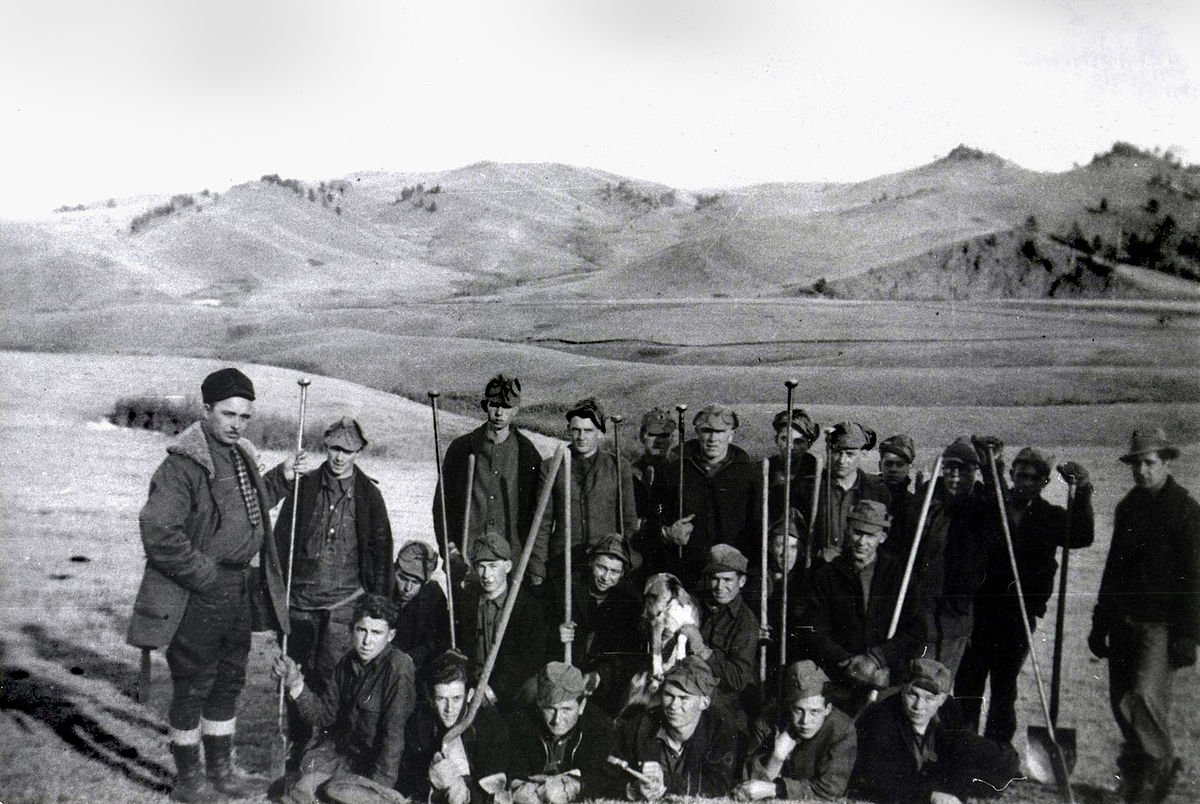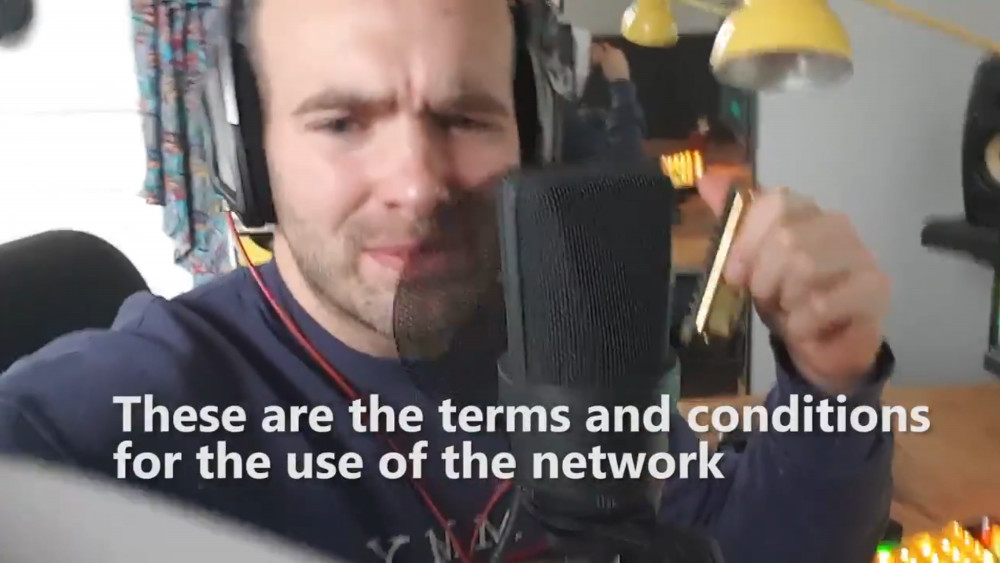
In 1933, FDR created the Civilian Conservation Corps, which went on to employ 3m workers (5% of the US male workforce!) in projects whose benefit we still feel today: road- and trail-building, tree-planting, firefighting, infrastructure maintenance and more.
1/
1/

The CCC had serious flaws - notably a policy of racial and gender discrimination - but for those who were lucky enough to qualify, it was a transformative experience, an end to the years-long terror of economic precarity and a chance to make a difference in the world.
2/
2/
Millions of working-class Americans were given a chance to see their country and be immersed in the natural environment in a way that mainstreamed the principles of conservation. The beautiful outdoor spaces Americans enjoy today are the legacy of that program.
3/
3/
Today, about a quarter of the US workforce is unemployed; when you add in the people who are underemployed, or whose employment is in through a precarious, exploitative "gig economy" app that misclassifies them as contractors, the number climbs even higher.
4/
4/
But America does not lack for work that needs doing. The nation's crumbling infrastructure and public works need more than maintenance: the needs remediation and hardening against the coming waves of climate emergency.
5/
5/
Just in California, we need at least $1b worth of brush clearout and controlled burns, ANNUALLY, for the next DECADE, to make up for a century of forest mismanagement, terribly exacerbated by climate change.
pluralistic.net/2020/09/21/too…
6/
pluralistic.net/2020/09/21/too…
6/
There's caring work, too, as people are traumatized by climate change and its heralds: invasive species, pandemic, dislocations.
Long term, there's relocating every coastal city inland. We have full employment for the next three centuries. At least.
locusmag.com/2020/07/cory-d…
7/
Long term, there's relocating every coastal city inland. We have full employment for the next three centuries. At least.
locusmag.com/2020/07/cory-d…
7/
The leading theorist of a modernized workforce to cope with climate emergency is @ptcherneva, whose "The Case for a Job Guarantee" makes the case that, beyond "programs" like CCC, we need to make employment for those who want it into a legal right.
latimes.com/entertainment-…
8/
latimes.com/entertainment-…
8/
The Sanders campaign endorsed the idea, as do progressive elements of the Democratic Congressional caucus. But even though the party establishment hasn't come around to a guarantee, they have come out for a rebooted CCC, a Civilian Climate Corps.
wired.com/story/the-case…
9/
wired.com/story/the-case…
9/
The new CCC is in the Biden platform, and versions of it have been mooted by @DickDurbin [D-IL] and @RepMarcyKaptur [D-OH]. As @mrMattSimon points out in his @Wired story, the CCC is an American institution, something with a national history.
10/
10/
The American exceptionalism used to dismiss other commonsense measures like universal health care ("Maybe it works in Sweden, but it won't work here") can't be applied to CCC: it has worked here, and left behind a beloved legacy.
11/
11/
The popularity of a new CCC is another sign that Reaganomics and its emphasis on enriching the wealthy in the hopes of some trickledown for the rest of us is on the way out.
12/
12/
If the US government gives people good jobs that pay inclusive wages and humane benefits, it will create massive demand for goods and services from the private sector.
13/
13/
"A revived CCC could pour money into tackling a bevy of other environmental problems, too. Revitalizing public green spaces, for instance, benefits all Americans. We urgently need to better prepare our coastlines for rising seas.
14/
14/
"Restoring wetlands and forests would pull double duty, returning ecosystems to their former glory and creating carbon sinks: Plant more trees and you can sequester more CO2 from the atmosphere.
15/
15/
"Actually, in the case of wetlands, make that triple duty—healthy wetlands work as flood control during hurricanes, absorbing surges of water."
eof/
eof/
• • •
Missing some Tweet in this thread? You can try to
force a refresh







